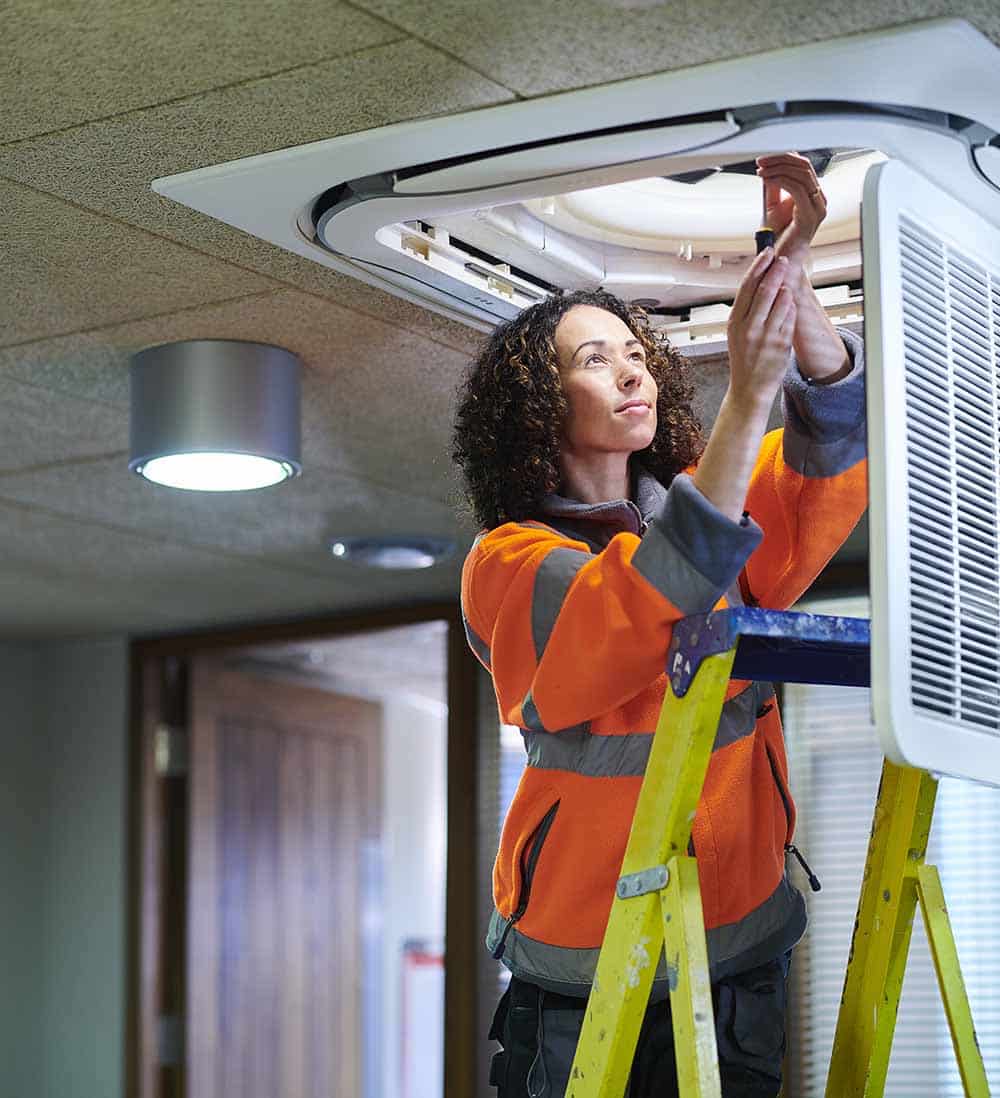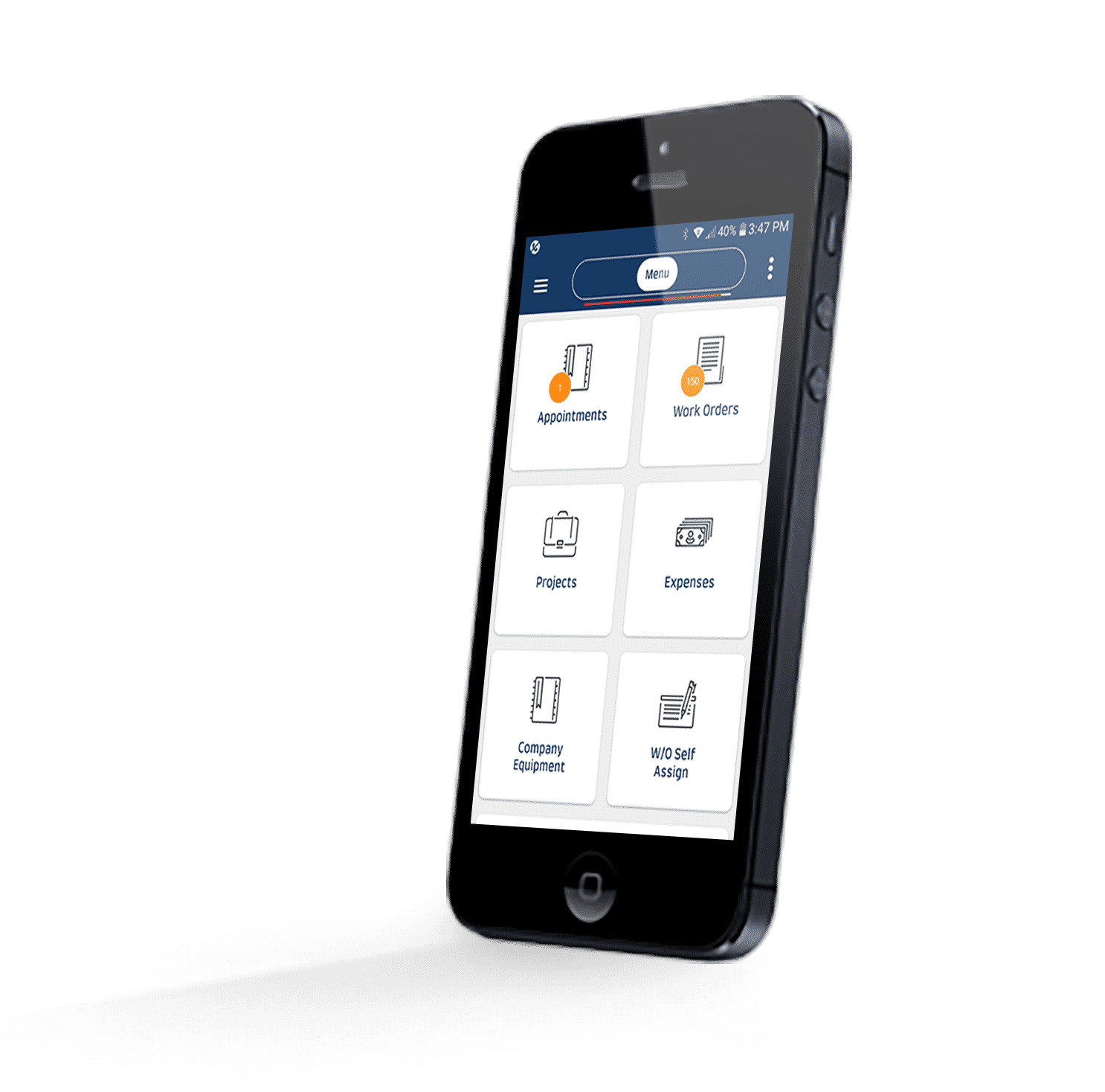AHR 2020 Report: Environmental Trends Lead New Construction Charge
Want to learn more? Call us: 1-866-336-5282 or sign up for a no-obligation demo Schedule a Demo
Post-AHR Report Software Pavillion
The AHR Expo, the world’s largest HVACR event, was held February 3-5 in Orlando, Florida this year, returning back to the Orange County Convention Center for the first time since last hosting in 2016. With over 770 categories of products, there is no question why the AHR Expo has been called the Super Bowl of HVACR, as over 70,000 people attend the annual show to see what is new in HVACR technology, to discuss the trends that are hovering over the industry, and to get a better glimpse into the future of the industry.
Fieldpoint, for the third year in a row, was part of the software pavilion. At the show, Fieldpoint showcased their field service management software, demonstrating to attendees how HVACR operations can be completed more efficiently with a field service management system. With global concerns over climate change, global temperatures, and a personal resolve to reduce the expense of running HVACR equipment, HVACR businesses are finding increased installation and retrofitting older equipment challenging. Especially with a reduced labor force that is not being replaced, as Millennials are not entering the field service industry is enough numbers to replace out-going technicians.

With these challenges, field service software is becoming a common solution amongst HVACR businesses. But even today, only 48% of field service businesses are using field service management software, leaving many HVACR field service businesses left with outdated processes to complete their work.
This report will focus on trends in the HVACR industry, including these shifts in global initiatives, driving new technologies, reduced labor force, and a renewed sense of adopting better processes to become more efficient. You will see how Fieldpoint’s field service management software is answering the challenges of the HVACR industry with automation, connected integrations, and a robust management system for all emergency break/fix, preventative maintenance and installation project work.
The HVACR Industry Glance
In 2019, IBISWorld reported the HVACR industry was worth $96 billion in their annual report. Over the last five years, as we also noticed in last year’s AHR 2019 Report, the industry expanded along broad construction trends, with heavy influence coming from the construction sector. Annual growth between 2014 and 2019 was 2.4%, and the number of HVACR businesses and employment in the industry was on the rise.
While new construction continues to be the top service of HVACR, it dropped off slightly from 2018’s mark, where over 50% of the industry was segmented for new installation work. Maintenance and repairs continue to hold steady, while replacing systems, especially with new, energy efficiency technology, is on the rise. Overall, the HVACR industry is in good shape, as the industry continues to see increased profits year-over-year, which comes on the back of the new construction segment.
AHR released their annual Economic Survey, and of 1,418 respondents, 75% expect business to increase in 2020. While 25% expect business to increase more than 10%. Respondents also said that maintenance and replacement have the best prospect of the market segment for 2020, with 72% listing it as their top option. Retrofitting and new construction followed with 67% and 64% each.
And unsurprising, respondents indicated that tariffs, emergency efficiency and DOE regulations, and regulatory compliance and new standards are on their radar for 2020 in terms of opportunities and trends.
Dramatic Shifts in Climate And Technology
The global concern over rising temperatures has had a significant impact on the HVACR industry. Energy consumption is at the forefront, with consumers making more environmentally driven decisions on the type of equipment they are purchasing. Businesses and individuals are now looking at alternatives to make a lesser impact on the environment. Numerous exhibits at this year’s AHR Expo focused on new green technology and more efficiency products. And talks were held to discuss the trend happening in the HVACR industry and how it’s impacting service delivery at a construction and maintenance level.
According to a press release at the AHR Expo by Toro Watt, new air conditioning technology reduces energy consumption by up to 70%. And when consumers are faced with a choice, they are looking at products that reduce or eliminate the use of an energy consuming products, or for more efficient products and technologies.
“What we’ve found is that people do want to make changes in how they consume energy and in how they ultimately impact the environment, but they don’t want to significantly change their comfort level,” said Tiger Aster, CEO of TORO Water Air Thermal Technologies. “The products they choose can’t be significantly costlier than what they are used to now.”
National standards for energy efficiency are projected to encourage building owners to upgrade to more efficient systems. That will increase demand in the construction, retrofitting and upgrading sectors of the HVACR industry. This has included using different technologies such as geothermal heat pumps, ice-powered air conditioning and solar HVAC where useable. By reducing the use of fossil fuel burning, it lowers the impact traditional HVAC equipment is having on the environment.
“Building and HVACR professionals have an obligation to make the indoor environment a place where we can be safe, healthy, productive, and comfortable,” said Darryl Boyce, President of ASHRAE. “At the same time, we are also stewards of the environment and must provide for these human needs in ways that are sustainable.”

New Incentives for Building And Homeowners
A greater demand for new efficient HVACR equipment has been accelerated by federal and state energy efficiency incentives that are going both building owners and homeowners more of a reason to meet energy efficiency demands. Demand for updated equipment is growing with these incentive programs, as rising electricity costs are motivating consumers to try and find reductions in the monthly cost of running essential HVACR equipment. Considering nearly every building requires some functioning HVAC system, the time has arrived for building owners to look for alternatives that not only save them money off electricity costs, but also meet new energy regulations.
Want to learn more? Call us: 1-866-336-5282 or sign up for a no-obligation demo Schedule a Demo
HVAC Industry Growing Labor Shortage
A growing problem in the HVACR industry is the lack of skilled workers. For more than a decade, qualified technicians have not been entering the field at a rate which will replace those leaving. And by 2020, statistics show that 25% of the workforce will be at retirement age, while the industry is seeing a 15% growth in jobs being created. This is leaving some HVACR business with a serious shortage of qualified workers who are able to provide service. The EGIA Foundation, which researches students entering the workforce, noted that only one in 10 students today are looking at a technical or vocational school to be trained to be a field service technician.
Millennials and post-Millennials are not considering life in the field service industry, which is leaving a wide gap for talented labor. It creates a growing problem inside service providers, as technicians are leaving if they don’t get advancement opportunities, can achieve higher pay elsewhere, or a better work/life balance somewhere else. This has left many in the HVACR industry to turn to subcontractors and third-party providers to complete service requests. Either for entire installations to companies that specialize in installations, or for recurring maintenance that doesn’t require a high-level of skill.

“The need to have the very latest expertise in HVAC cuts a wide swath through our association member segments, from OEMs (original equipment manufacturers), integrators and installers, to builders, developers and facility managers to engineering and architecture,” said Ron Zimmer, President and CEO of the Continental Automated Buildings Association, who was part of the AHR Economic Report. “As one of the leading conferences, AHR Expo is a pivotal place for the education and networking that is necessary to gain that expertise and understand the current state and future direction of the market.”
HVAC is amongst the big four technologies in almost all intelligent building projects, along with lighting systems, fire and life safety, and security systems. And the future demand for HVAC systems is only increasing with the desire to become more environmentally friendly. So, new technicians are going to need to be trained and enter the workforce, or a reliance on third-party vendors will increase.
Connected Field Service with Integrations
With more businesses using software today, the need to connect all of the software together is growing. Cleo estimates that small businesses are using between four and five different software solutions to run their business. While medium sized businesses are using nearly seven kinds of software to run their HVAC business. This includes accounting systems, ERP and CRM systems, field service software, dispatching and scheduling tools, mobile apps and programs, tax software, workforce management and lead capturing and generation tools, amongst others.
With this much software, HVAC businesses are looking to have them integrated and connected with each other. This achieves the ability to pass information and data freely amongst the software systems. Considering the difficulty in finding one software solution that provides all of the above-mentioned capabilities every software is an expert in, integrations is critical to the success of any HVAC business who wants to scale their operation. And so, evaluation is being considered when purchasing software and its ability to integrate to other software to form a complete field service management system.
Want to learn more? Call us: 1-866-336-5282 or sign up for a no-obligation demo Schedule a Demo
Want to learn more? Call us: 1-866-336-5282 or sign up for a no-obligation demo Schedule a Demo
